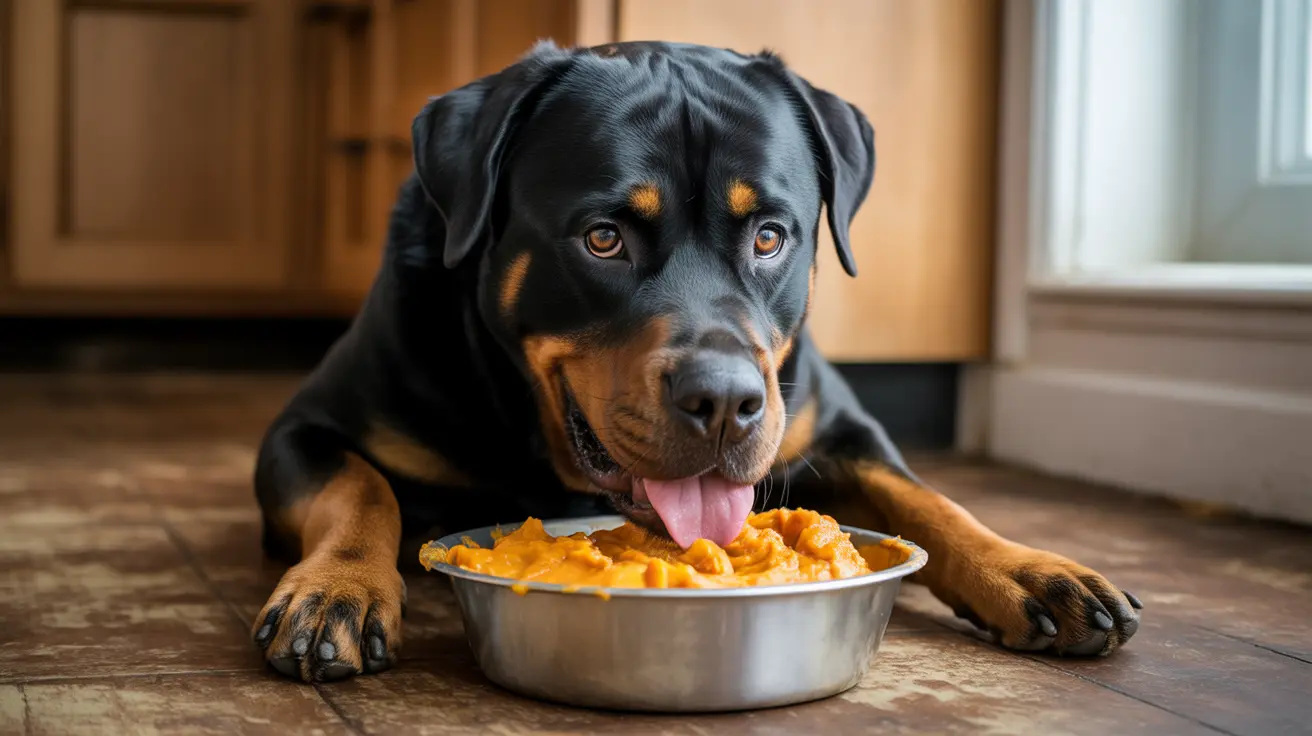Dealing with a constipated dog can be distressing for both pets and their owners. Understanding how to recognize, treat, and prevent dog constipation is crucial for maintaining your furry friend's health and comfort. This comprehensive guide explores effective dog constipation remedies and when professional help might be necessary.
Constipation in dogs manifests through several recognizable signs, including straining during bowel movements, passing small or hard stools, and decreased frequency of defecation. Early recognition of these symptoms allows for prompt intervention, potentially preventing more serious complications.
Understanding the Causes of Dog Constipation
Several factors can contribute to dog constipation, ranging from simple lifestyle issues to more complex medical conditions. Understanding these root causes is important for selecting the most effective remedy and for long-term prevention.
- Insufficient water intake or dehydration: Dogs that do not drink enough water may develop harder stools and experience difficulty in passing them.
- Lack of dietary fiber: Fiber helps bulk up and soften stools, making bowel movements easier.
- Sudden diet changes: Abrupt dietary changes can disrupt digestive regularity and lead to constipation.
- Limited physical activity: Inactive dogs often have slower digestive transit times, which can cause constipation.
- Ingestion of foreign objects: Non-food items can block or interfere with normal bowel movements.
- Medication side effects: Certain medications can slow gut movement and result in constipation as a side effect.
- Underlying health conditions: Problems such as hypothyroidism, kidney disease, or spinal issues may cause or worsen constipation.
The Importance of Hydration for Dogs
Proper hydration plays a crucial role in preventing and treating dog constipation. Water helps keep the digestive tract lubricated and ensures stools retain enough moisture to pass easily. Encouraging your dog to drink more water each day is a simple yet effective strategy to combat constipation.
- Place multiple water bowls throughout your home to make water readily accessible for your dog at all times.
- Consider investing in a pet water fountain; flowing water often attracts dogs and encourages them to drink more.
- Add low-sodium broth to your dog's meals as a tasty and hydrating supplement.
- Switch to canned dog food for additional moisture if your dog is on a dry-kibble-only diet.
Effective Home Remedies for Constipated Dogs
Dietary Solutions
Certain food-based remedies can naturally relieve constipation in dogs. Incorporating these items into your dog's regular meals can promote healthier digestion and more regular bowel movements.
- Pumpkin for dog constipation: Add 1-2 tablespoons of pure canned pumpkin (not pie filling) to your dog’s meal. Pumpkin is high in soluble fiber, which helps lubricate and move stools through the digestive tract.
- Fiber-rich foods: Safe, cooked vegetables such as carrots or green beans can provide extra fiber while still being gentle on your dog’s stomach.
- Probiotics for dogs: Introducing canine-specific probiotics (or a small amount of plain yogurt) supports gut health and may help restore regularity.
- Natural oils: Small amounts of olive oil or coconut oil act as natural lubricants for the digestive tract, but always use in moderation to avoid diarrhea.
Exercise for Constipated Dogs
Regular physical activity is essential for maintaining healthy digestion in dogs. Daily walks, interactive play sessions, and other prolonged exercises help stimulate the digestive system and keep your dog’s bowels functioning smoothly. If your dog is mostly sedentary, gradually increasing their activity level can make a significant difference in preventing and alleviating constipation.
Safe Diet Changes for Dogs
Diet changes should be made thoughtfully to avoid upsetting your dog’s digestive system even further. Implement the following steps for safe and effective dietary adjustment:
- Make gradual transitions to new foods over several days to let your dog’s system adapt.
- Monitor your dog's response to dietary changes, watching for improvement or signs of distress.
- Maintain consistent feeding schedules to establish regular digestion cycles.
- Choose high-quality, moisture-rich foods to aid hydration and stool softness.
- Consider specialized digestive health formulas if your dog’s constipation is persistent or recurring.
When to Seek Veterinary Care
While many cases of dog constipation can be managed at home, certain scenarios require prompt attention from a professional. If left untreated, constipation can escalate into a more dangerous condition known as obstipation, where the colon becomes severely impacted. Contact your veterinarian if you notice any of the following warning signs:
- Constipation persists beyond 48 hours, despite at-home remedies.
- Your dog shows signs of pain, distress, or cries when attempting to defecate.
- There is vomiting or a complete loss of appetite.
- You notice abdominal swelling or bloating that was not present before.
- Your pet becomes lethargic and lacks interest in normal activities.
Frequently Asked Questions
- What are common home remedies for dog constipation? Common remedies include pumpkin puree, canned dog food to increase moisture, encouraging more water intake, fiber-rich foods, moderate amounts of olive oil, and boosting physical activity.
- How can pumpkin help a constipated dog? Pumpkin is high in fiber and moisture, helping to regulate digestion and soften stool, making it easier for dogs to pass bowel movements naturally and painlessly.
- Can I give my dog olive oil for constipation? Yes, a small amount of olive oil may help lubricate your dog’s digestive tract, easing the passage of stools. However, avoid excessive amounts to prevent upset stomach or diarrhea, and consult your vet if unsure.
- What foods help relieve constipation in dogs? Foods like canned pumpkin, fiber-rich dog foods, canned dog food, and safe fruits like blueberries or cooked carrots can aid digestion and relieve constipation.
- Why is hydration important for relieving dog constipation? Adequate water intake softens stool and promotes healthy bowel movements, preventing dehydration and constipation by ensuring stool can move easily through the colon.
- When should I visit a vet for a constipated dog? If your dog’s constipation lasts more than 48 hours, or is paired with warning signs such as vomiting, complete appetite loss, lethargy, pain, or abdominal swelling, seek veterinary care promptly.
- Does exercise help dogs with constipation? Yes, regular walks and interactive play stimulate intestines and encourage normal bowel movements, helping to prevent constipation.
- Are probiotics useful for constipated dogs? Probiotics can be beneficial for restoring gut health, supporting beneficial bacteria that promote digestive regularity.
- Can I use over-the-counter stool softeners for my dog? Only use stool softeners under veterinarian guidance. Never administer human over-the-counter products to your dog without approval, as some may be harmful.
- What are signs of constipation in dogs? Look for difficulty passing stool, straining, dry or hard stools, infrequent defecation, or visible discomfort during bowel movements.
Understanding and addressing dog constipation properly can help maintain your pet's digestive health and overall well-being. While many cases can be managed with home remedies, always monitor your dog's condition closely and seek veterinary care when necessary. Remember that prevention through proper diet, hydration, and exercise is often the best approach to maintaining healthy bowel function in your canine companion.






